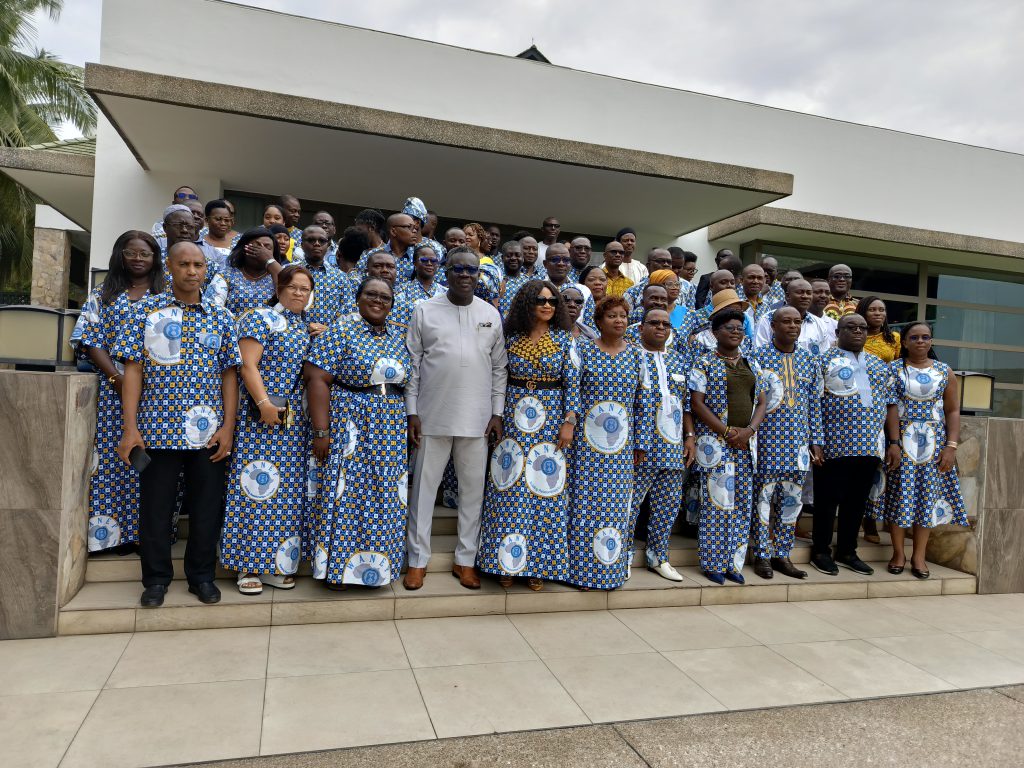By Iddi Yire
Accra, March 26, GNA – The future of CSOs in West Africa amidst key shifts in multilateralism and regionalism will be defined by their adaptability, innovation, and strategic engagement.
Dr Philip Attuquayefio, a Research Fellow, Legon Center for International Affairs and Diplomacy (LECIAD), University of Ghana, said while restrictive political environments, shifting donor priorities, and emerging challenges pose significant risks, CSOs that embrace digital transformation, diversify their funding models, strengthen regional alliances, and expand their thematic focus would continue to play a critical role in shaping governance, development, and human rights in the region.
“The ability to anticipate changes, build resilience, and assert influence in new and evolving spaces will determine the long-term sustainability and impact of CSO action in West Africa,” Dr Attuquayefio stated in his keynote address at the opening of the 18th General Assembly of the West Africa Network for Peacebuilding (WANEP) in Accra.
“The stakes are high, but the opportunities are equally significant. CSOs in West Africa must rise to this moment, not as passive participants but as architects of a future that prioritizes peace, security, and the well-being of all.”
The two-day meeting on the theme “Shaping the Future of Multilateralism and Regionalism in West Africa”, is focusing on the evolving dynamics of multilateralism and regionalism in West Africa.
It seeks to explore the challenges and opportunities for civil society organisations (CSOs) in promoting peace, security, and sustainable development across the region.
Dr Attuquayefio said the CSOs in West Africa would be shaped by the complex and evolving dynamics of multilateralism and regionalism.
He noted that as the global and regional order undergoes significant transformations—marked by shifting donor priorities, rising authoritarianism, deepening economic integration, and changing power alignments—CSOs must adapt to remain relevant and effective.
He said the trajectory of CSO action in this new landscape would largely depend on their ability to embrace innovation, expand partnerships, and assert their influence in governance and policy spaces.

Dr Attuquayefio one of the defining features of the future of CSOs in West Africa was the increasing closure of civic space, as governments impose stricter regulations, surveillance, and limitations on freedom of association.
He reiterated that in response, CSOs would need to develop more strategic, resilient, and decentralized approaches to civic engagement.
He said traditional advocacy methods might give way to more grassroots-driven, informal, and community-based activism, ensuring that civil society influence remains strong even under restrictive regimes.
“Furthermore, the role of youth and women in civil society will become increasingly important, as new generations of activists and leaders leverage digital platforms, creative advocacy tools, and social movements to advance human rights, democratic governance, and social justice,” he said.
“CSOs will need to integrate these new voices into their strategies to remain dynamic and responsive to societal changes.”
Dr Attuquayefio said beyond regional engagement, CSOs would also need to forge stronger alliances with international networks, particularly as traditional Western donors recalibrate their priorities.
He said South-South cooperation and partnerships with emerging economies—such as China, India, and Turkey—might present new opportunities for funding and collaboration.
He noted that however, CSOs would need to navigate these relationships carefully, ensuring that partnerships align with their core missions of human rights, democracy, and sustainable development.
Dr Attuquayefio said the increasing role of technology in governance and civic engagement would shape the future of CSO action in West Africa.
He said digital advocacy would continue to be a powerful tool for mobilization, awareness-raising, and exposing governance failures.
He underscored that social media, artificial intelligence, blockchain technology, and big data analytics would enhance CSOs’ ability to monitor elections, track human rights violations, and provide real-time evidence for policy advocacy.
Dr Attuquayefio said the future of CSOs in West Africa would also be determined by their ability to secure sustainable financing; adding that as traditional donor funding declines or shifts towards security and infrastructure projects, CSOs would need to diversify their financial sources.
He said this might involve exploring impact investment opportunities, engaging in social enterprises, strengthening corporate social responsibility (CSR) partnerships, and mobilizing domestic philanthropy.
He said diaspora engagement would also become a critical funding avenue, as African expatriates and international networks seek to contribute to development and governance initiatives in their home countries.
He said by tapping into these alternative financing models, CSOs could reduce their dependence on unpredictable donor funding and enhance their long-term resilience.
Mrs Levinia Addae-Mensah, the Executive Director of the West Africa Network for Peacebuilding (WANEP) in her welcome remarks noted that the successful conduct of elections in Ghana and Senegal in 2024, had gone a long way to strengthen the roots of democracy in West Africa.
GNA
BM